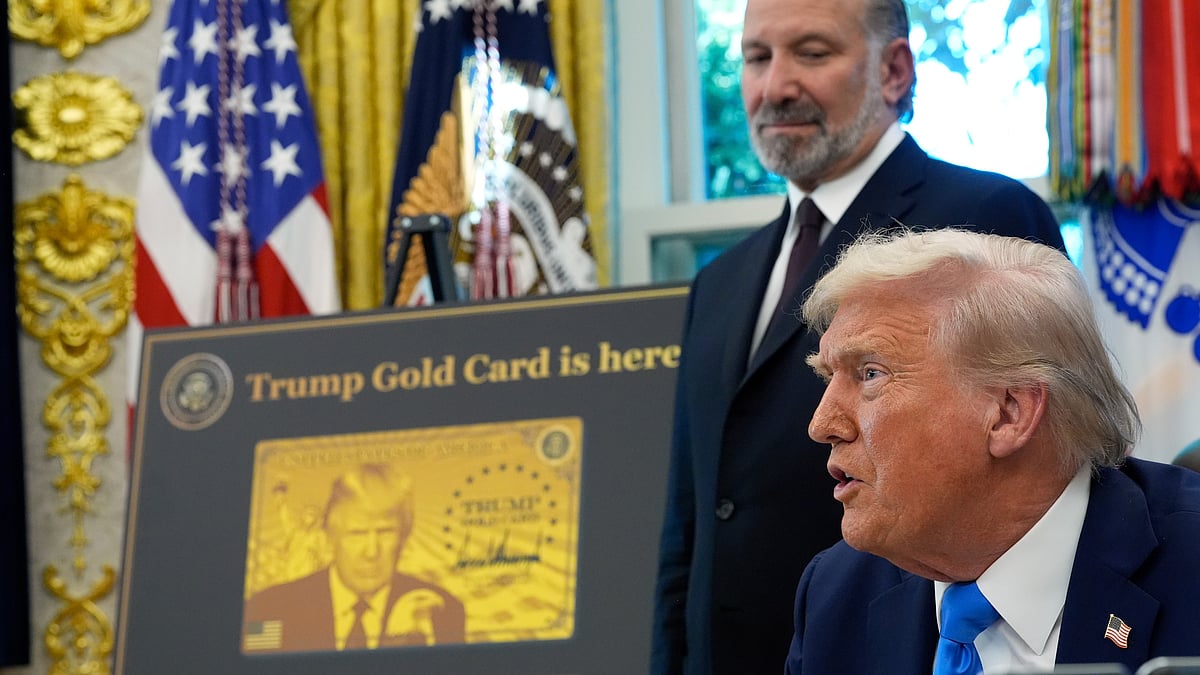World
India caught napping by Trump’s H-1B visa blow
Despite hiring lobbyists in America, the Modi government and the Indian embassy in Washington DC were blindsided by the dramatic annual fee of $100,000 imposed on H-1B visas from 21 September

Those with H-1B visas on vacation or work in India must return to the United States by midnight on Saturday, 20 September—practically impossible for those in India—or else be ready to shell out Rs 88 lakh INR or 100,000 US Dollars for the privilege of re-entering the US.
It is not clear yet whether the restriction is applicable to dependents as well. Most US based companies including Microsoft have been quick to issue an advisory to employees working in the US against leaving the country lest they find it difficult to return.
While it is not known how many such visa-holders are currently in India, it is unlikely that they will be able to meet the deadline. The two-day notice for the annual fees to kick in, that too just before the weekend, appears calculated to increase the pain.
While the fees is to be paid to the US government by companies engaging foreign workers, Indian professionals are the worst-hit as 72 per cent of the H-1B visas have been issued to Indian tech workers, many of them working for tech companies.
The dramatic rise from an average of $5,000 to $100,000 is clearly designed to cripple the H-1B visa programme. The US President’s executive order has made it doubly painful by making it a recurrent fee payable every year rather than a one-time fee.
The impact was felt immediately as H-1B visa holders scrambled to cancel air tickets to go out of the United States with reports coming in that several passengers who learnt of the announcement after boarding their flight, chose to disembark, causing confusion and delays due to the compulsion of unloading their booked baggage.
Published: undefined
“Companies need to decide if a foreign worker is valuable enough to pay $100,000 per year to the US government. If not, that worker will have to head home,” said US Commerce Secretary Howard Lutnick on new H1B visa restrictions.
The visas, which are approved for three years and can be extended for three more years. If a company sponsors an employee for the Green Card, the visas can be renewed till the permanent residency comes through. However, Indians on work visas in the US are caught in a decades-long wait for Green Cards, and the new move could impact whether they can continue to stay in the US if their companies decide not to pay the USD 100,000 fee annually now required to retain the visas.
The stunning announcement has also caught immigration attorneys in the US by surprise. Indian professionals, they pointed out, are generally rated highly and considered well-behaved and the least troublesome with low incarcerations for transgressions.
Published: undefined
'Some of the most brilliant people in Silicon Valley came from India on H1B visas. Trump's move will dramatically harm startups and innovation. Companies will pull back on sponsoring foreign talent,' said immigration lawyer Sophie Alcorn to Shashank Mattoo, correspondent of the Hindustan Times, he posted on X.
Most people felt it was disappointing that the Indian government failed to anticipate the development. There is nothing in public domain to suggest that New Delhi was aware of the move and had taken steps to stop or delay it. The least they could have done is to demand a fair notice in advance and link it to the on-going trade talks.
Published: undefined
Follow us on: Facebook, Twitter, Google News, Instagram
Join our official telegram channel (@nationalherald) and stay updated with the latest headlines
Published: undefined